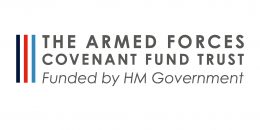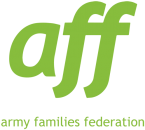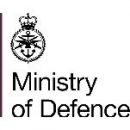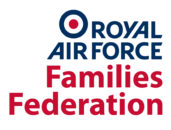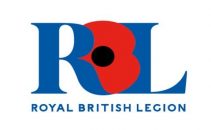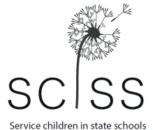An Interview with Dr Georgina Normile: ‘The Impact of Parental Deployment on the Wellbeing of British Army Children in the Pre-school Year’.
Posted in Views by Georgina Abbott, SCiP Alliance
I spoke with Dr Georgina Normile, Senior Lecturer in Primary Education at Bath Spa University about her research paper, ‘The Impact of Parental Deployment on the Wellbeing of British Army Children in the Pre-school Year’. Crucially, Georgina’s work explores the child’s perspective, not just the perspectives of professionals and parents. This valuable research highlights the importance of listening to the Service child voice.
What led to this particular research?
This research came out of a research interest at teacher training at Bath Spa, I did a project with Service children in 2009, a year with the highest losses of personnel in Afghanistan, this fired up an interest. The focus on Early Years research came from engaging with stakeholders, the Army Families Federation and the DCYP. Very little is known about Early Years Service children. On an international level, research tends to start at 8yrs and upwards. I specifically wanted to fill the research gap, exploring 3 and 4 year old pre-schoolers, during their year before school.
Statistics from the MOD suggest that there are approximately 21,000 UK service children under the age of five (MOD, 2019) and yet they appear to remain almost completely overlooked in UK educational and social policy and academic literature.
When talking about parental deployment, there is a tendency to lead to a ‘crisis narrative’ and this is very much present in American research literature. For example, with a parent away the young child may display difficult behaviours and these are often framed as problems rather than the expressions and responses of a young child when faced with a lengthy separation from one or both of their parents. I also strongly believe that when we explore this we shouldn’t only look at problems, but also strengths and resilience. It’s just as important to understand the strength and resilience, as it is to understand the areas of challenge. To explore what’s going right and how we can facilitate that.
How and when did you conduct the study?
I conducted my research with the children, their non-deployed parent and educational practitioners in 2018 – 2019. I felt the importance of situating the pre-school children’s experiences both within the culture of the British Armed Forces and the operational/ training commitments of the British Army at that particular time. As researchers, policy makers and educational practitioners, we should avoid being overly reliant on international literature or that from a previous era. Furthermore, Service children and families are not homogenous groups, so we can never presume that families will experience deployment in the same way. Coming from a Service family background I felt it vital to explore this. This particular research is focussed on Army children, using participatory research methods: photography, drawing, talking to the children alongside a known adult – parent or practitioner. One mother provided a photo of little one in bed hugging a huggable hero toy given to them the day Dad left for Afghanistan. These symbolic methods, maintaining a symbolic presence of parents is key for young children.
You speak about the wellbeing of the children – what does this mean in this context?
We talk about ‘wellbeing’ in so many different spaces, but don’t explore what it means. Wellbeing is a very nebulous term – I had to explore what it means, how it can be used and what things do we need to explore to better understand and support children’s wellbeing.
Lots of literature refers to domains of wellbeing but we can’t always clump these together under one heading, even though they are intrinsically linked. For example, looking at a child’s physical wellbeing includes aspects of health, nutrition, sleep and recreation. This is different to being emotionally distressed about a parent going away. The social aspects include things like how they are then interacting with peers and the support that friends can provide. Cognitive wellbeing often looks at attainment, it is important, but it’s just one part of the whole aspect of wellbeing, we can’t say how these children are in terms of levels against EYFS. Wellbeing is a very multi-dimensional concept which is difficult to pin-down. The Model used in my research says if we are considering Service children’s deployment related wellbeing we should be considering all of these domains.
It is also crucially important to appreciate that familial, social relationships and environment will have an enormous effect on wellbeing, so we shouldn’t simply look at a child in their educational setting. Service children do not exist in a vacuum. My report pulls apart some of the ambiguity around wellbeing, and examines what lens we look at wellbeing through. The philosophical, psychological, medical/health and economic approaches were considered within this research, thereby enabling us to look at resources we can provide in order to support these areas.
There’s clearly a wealth of important information in your report, but what would you say are your key messages?
● We absolutely cannot discount the experiences and wellbeing of preschool Service children. We shouldn’t presume that only the school years and academic attainment matter.
● On a policy level we need to be looking at tailoring support to meet the different domains of children’s wellbeing during deployment. It could be psychological how can we focus on that and how might that look different from physical. Also, one of bigger things is we need to look at supporting the whole at home unit, not just the child in the educational setting. Stop seeing children as individuals who are separate – the whole family unit is affected by parental deployment.
● Early Years Providers should consider working alongside parents to develop an array of strategies to help young children understand complex concepts such as time, distance and parental roles in relation to parental deployments.
● Service Pupil Premium needs to be expanded into the preschool year, in alignment with other pupil premiums.
● It is important that the findings from research such as this are disseminated to early years settings across the UK in order to support them in better understanding the implications of a parental deployment to the wellbeing of the children in their care. Through this, they can then support both the children in their care and the families that they are part of.
● It is also important that findings such as this are used to inform organisations who are involved in the training of early years practitioners and in the inspection of pre-schools, such as Local Education Authorities and Ofsted.
Read the Research Briefing Paper - Pre-school Army Children and Deployment-related Wellbeing


